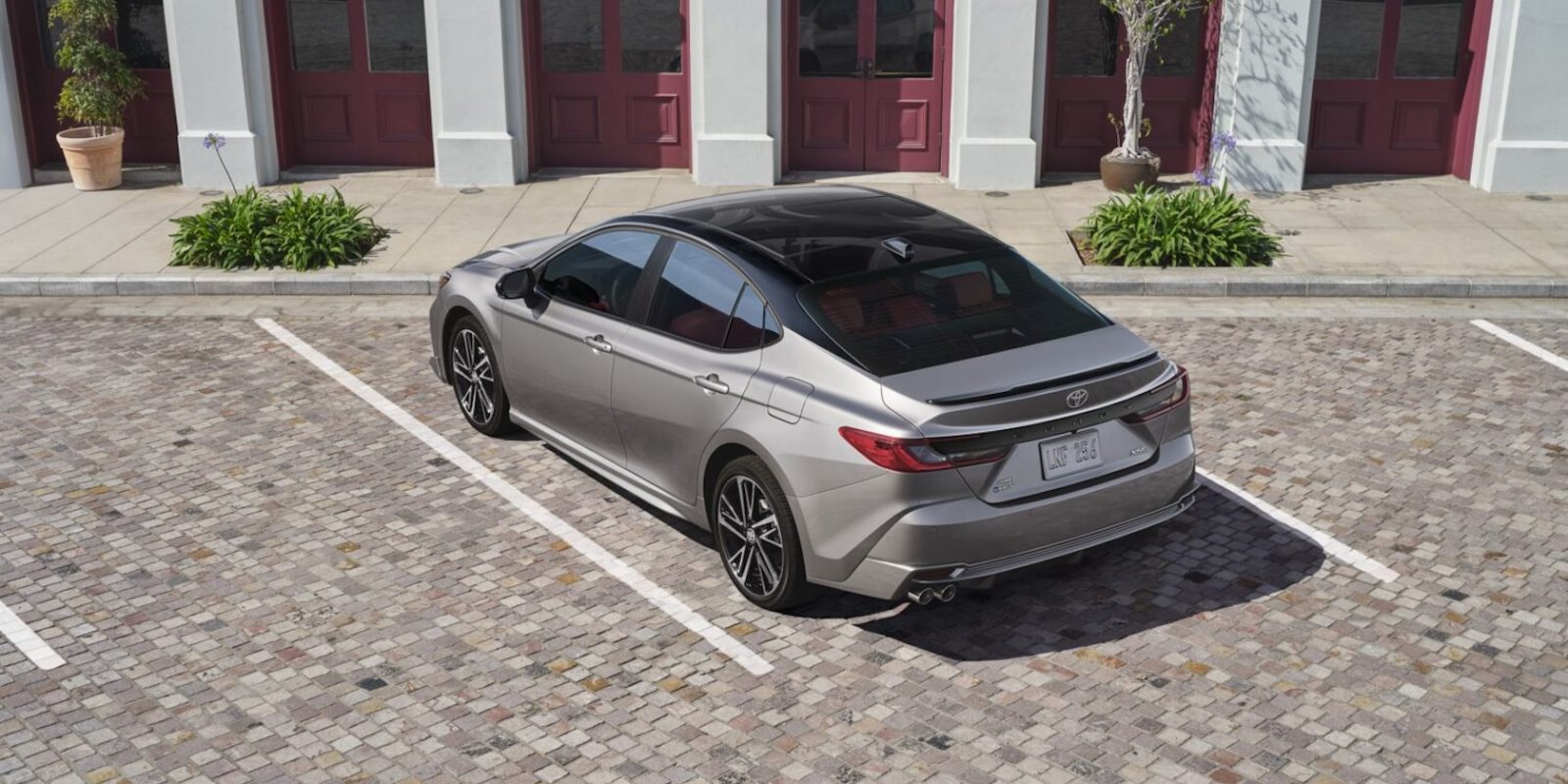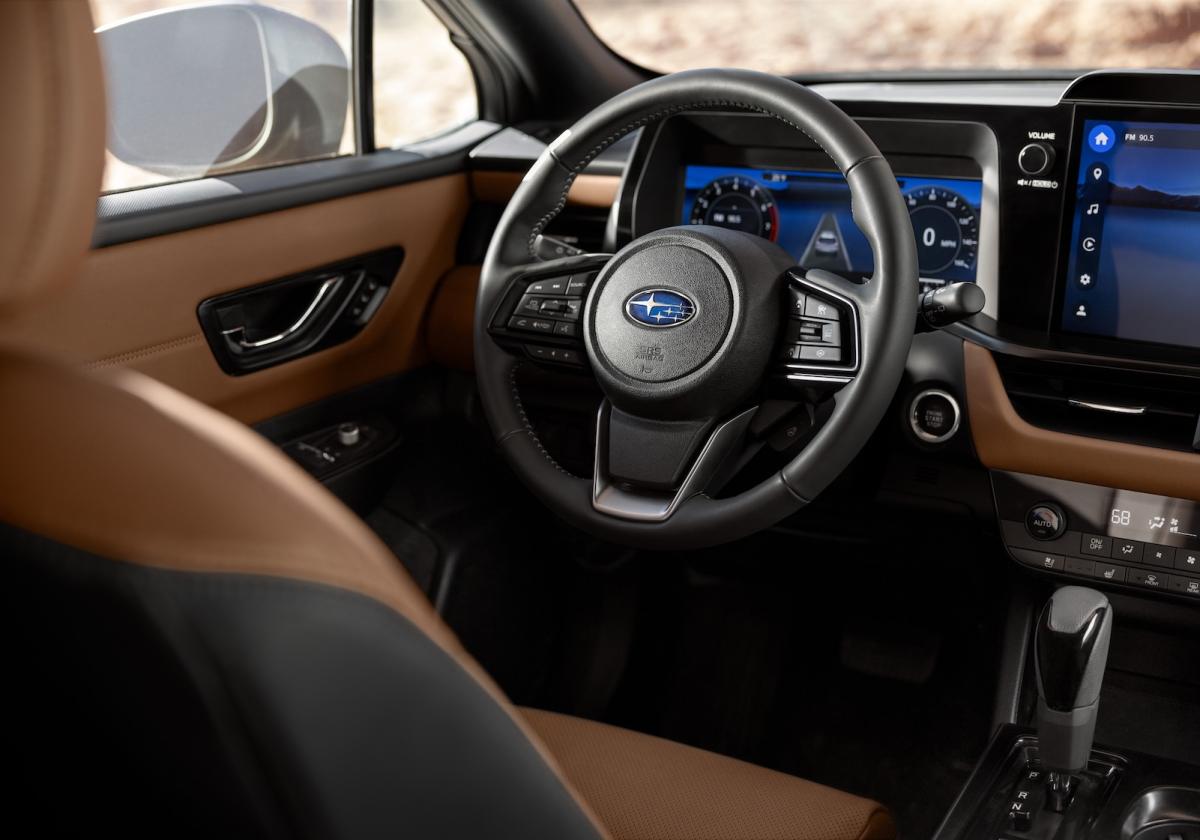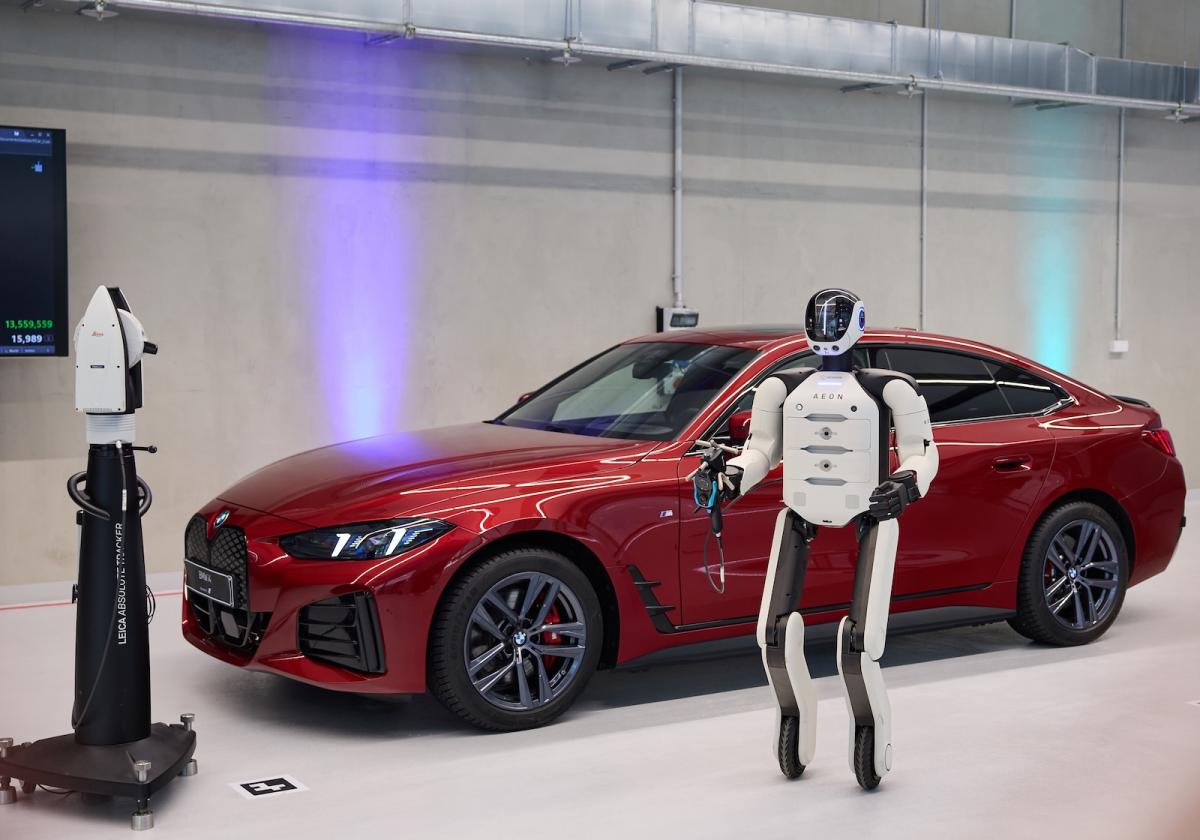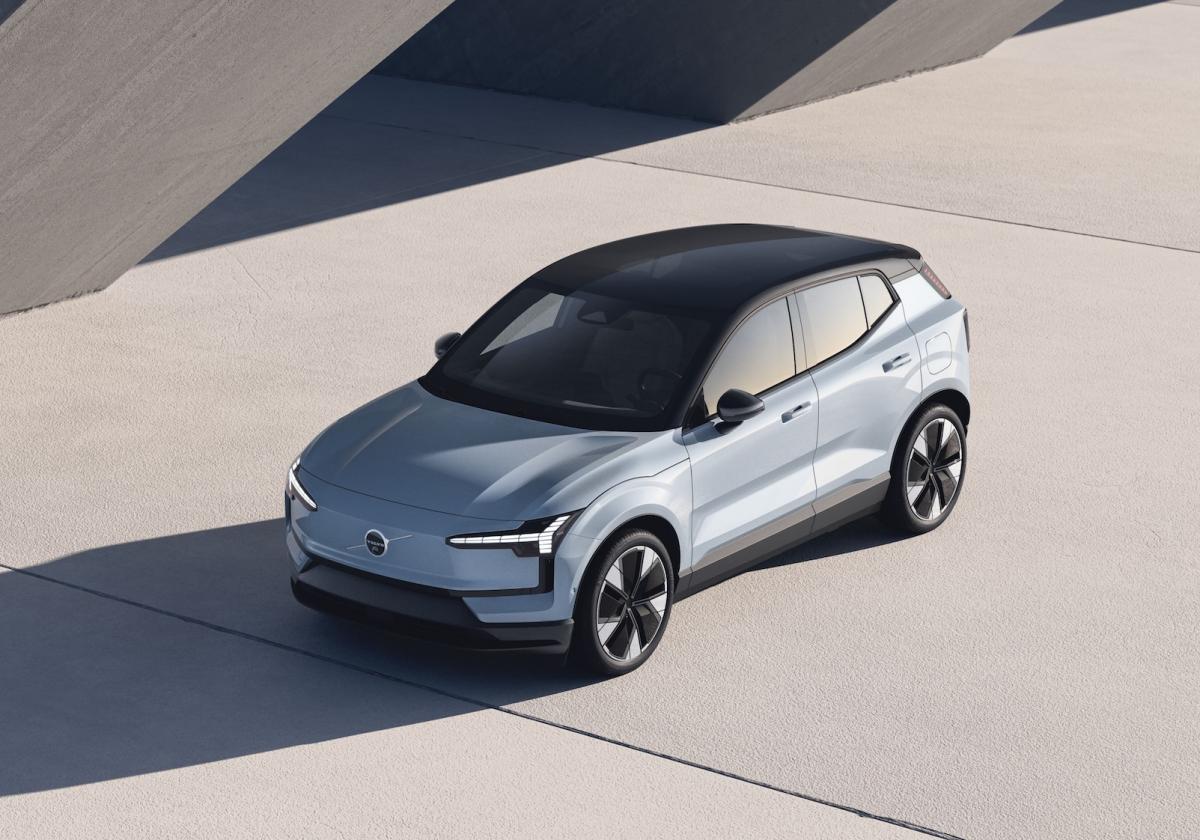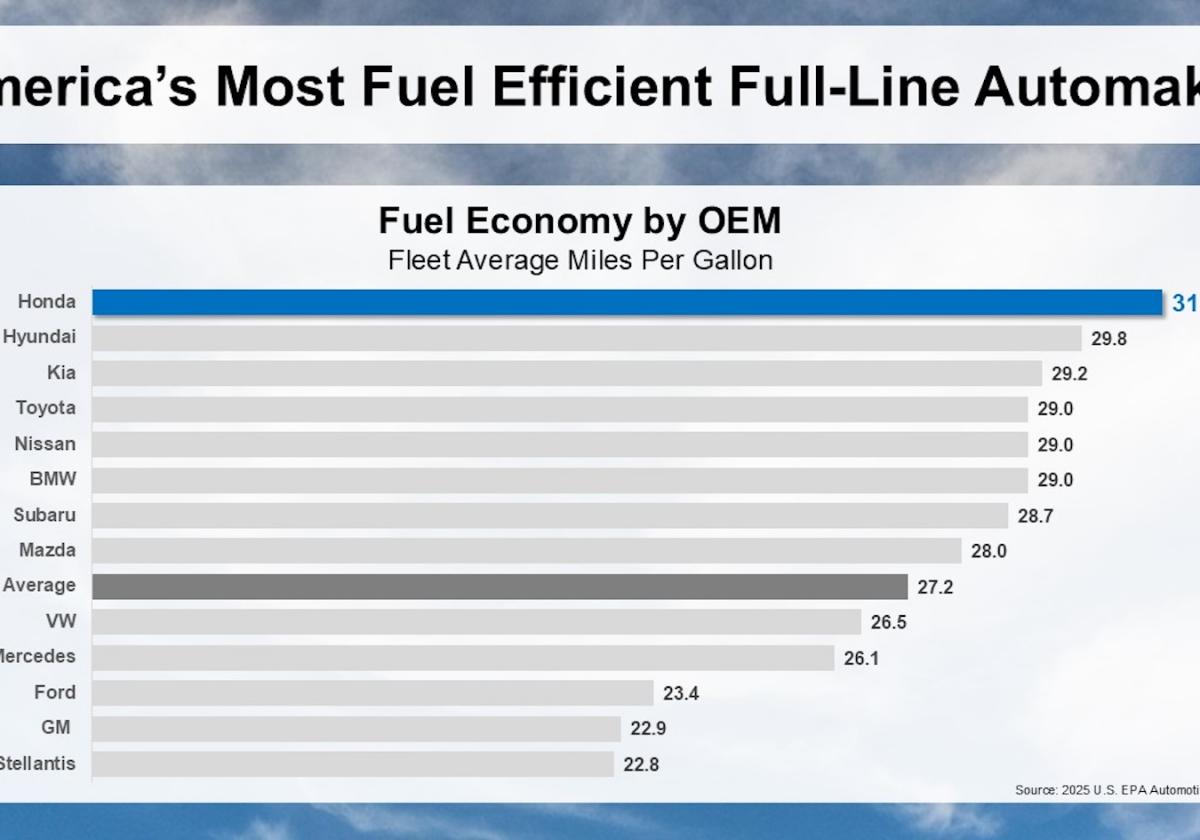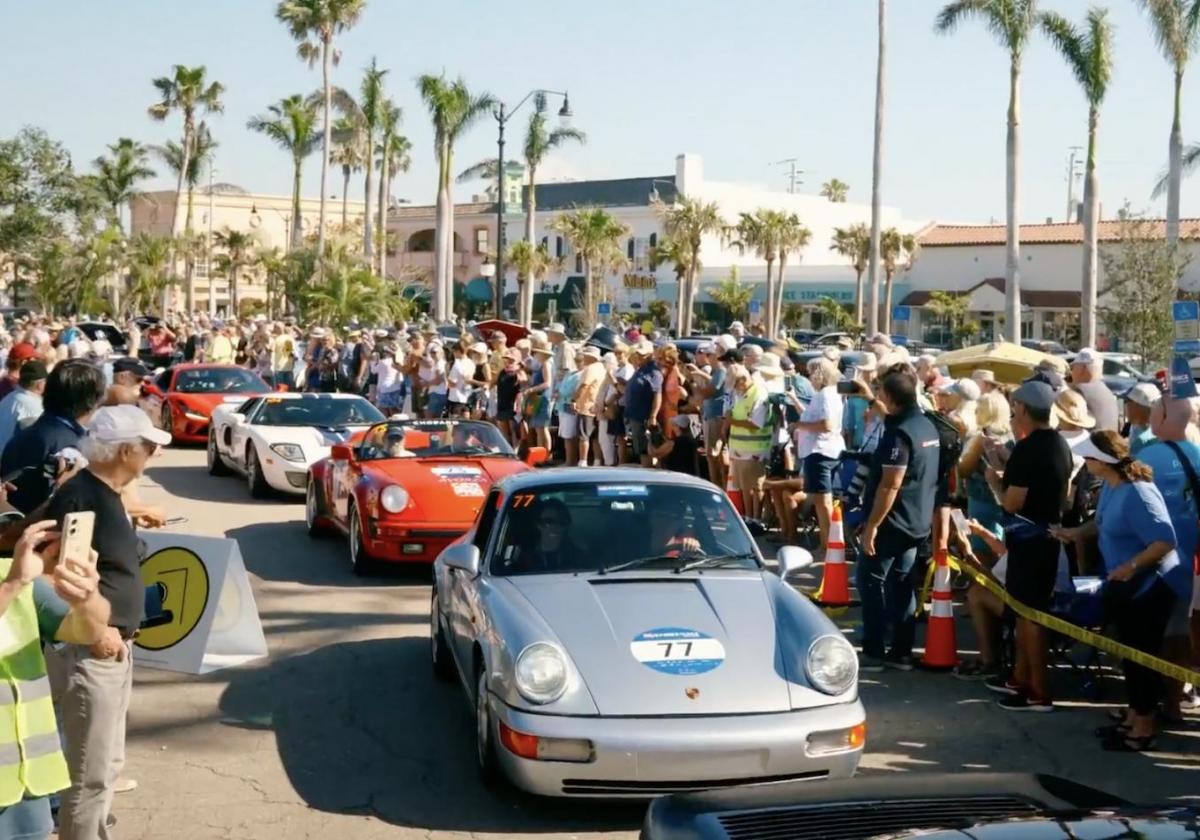Toyota has taken the wraps off the 2025 Camry Hybrid sedan, now in its ninth generation. The Camry moves to a gas-electric hybrid powertrain exclusively, offering more power and improved fuel efficiency.
Toyota says the new Camry Hybrid pairs a 2.5-liter four-cylinder engine with a fifth-generation hybrid system, producing 225 horsepower in front-wheel drive models and 232 horsepower in all-wheel drive versions. Toyota claims the extra electric motor boost at lower speeds provides better acceleration and torque. Fuel efficiency has not been published, but we expect it to be around 50 mpg.
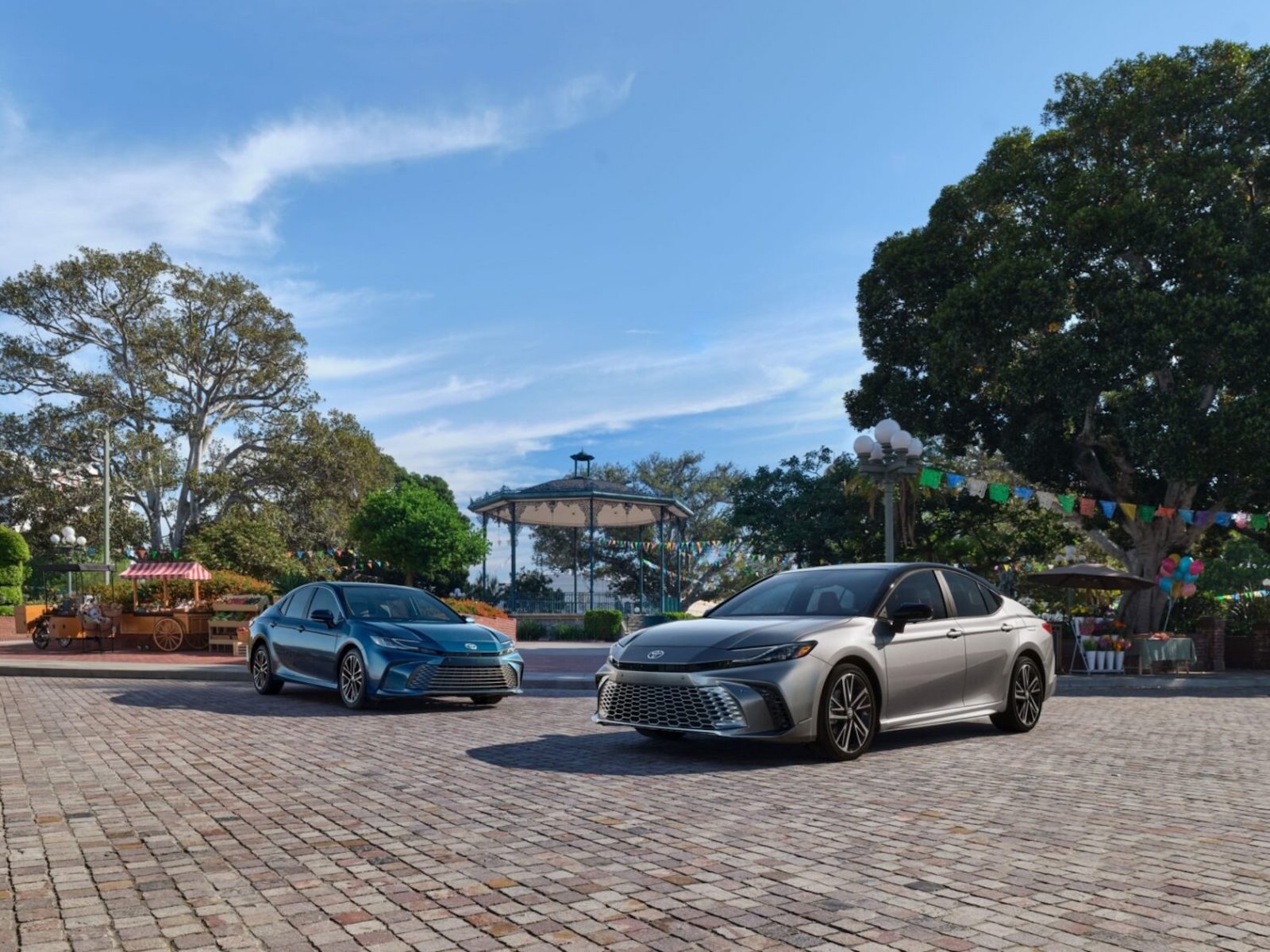
Styling takes on a sleeker, more athletic look with a distinctive front grille design and slim LED lighting. Sporty SE and XSE trims add functional air ducts, canards and diffusers plus 18- and 19-inch black alloy wheels. Dual exhaust tips and a trunk lid spoiler amp up the attitude.
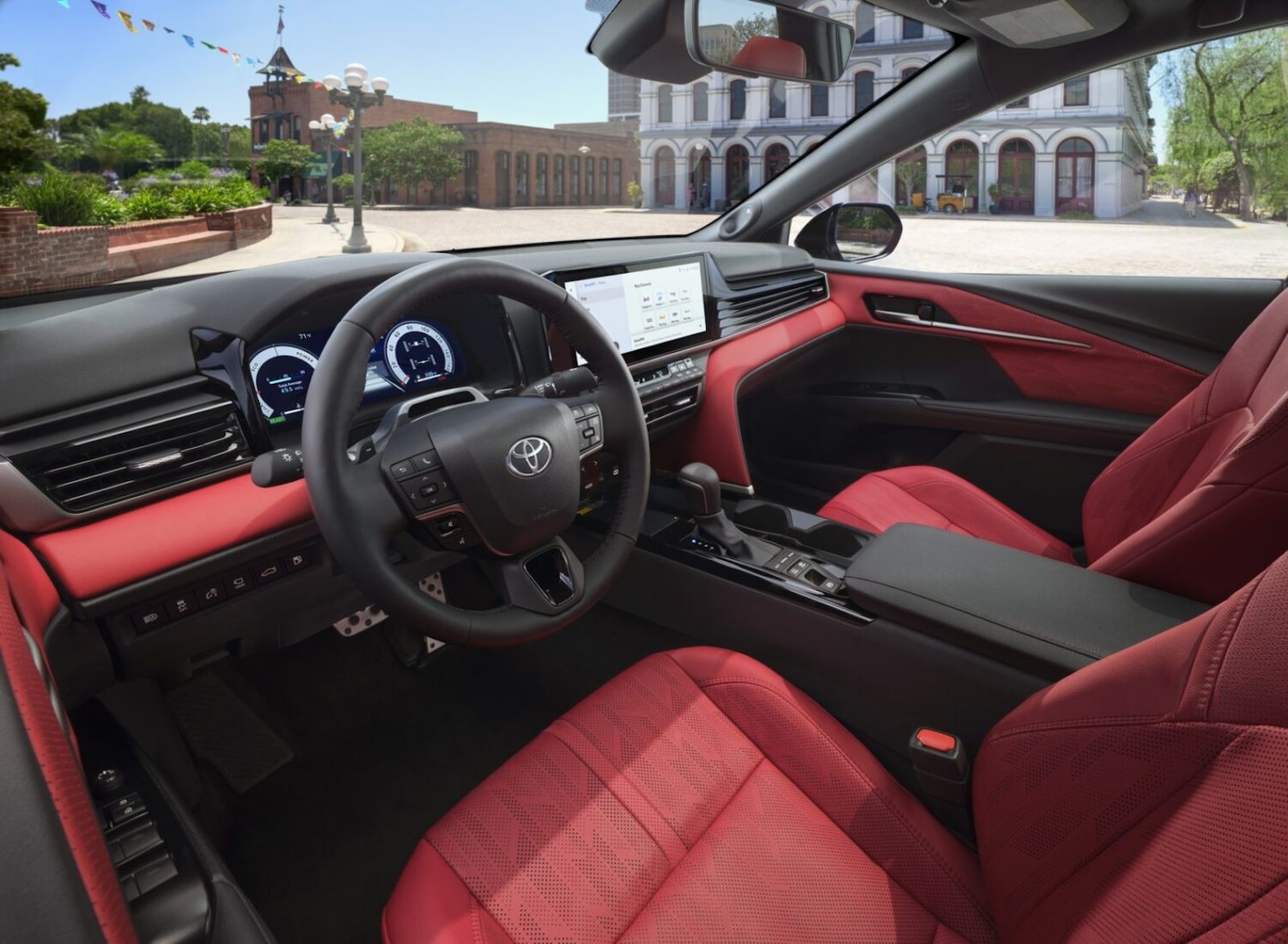
Inside, Toyota aimed for an open, modern cockpit feel with refined materials. The SE and XSE feature SofTex faux leather upholstery with contrast stitching; the XSE coming in black with blue accents or Toyota’s signature red. Quilted leather with microfiber inserts dress up the XLE.
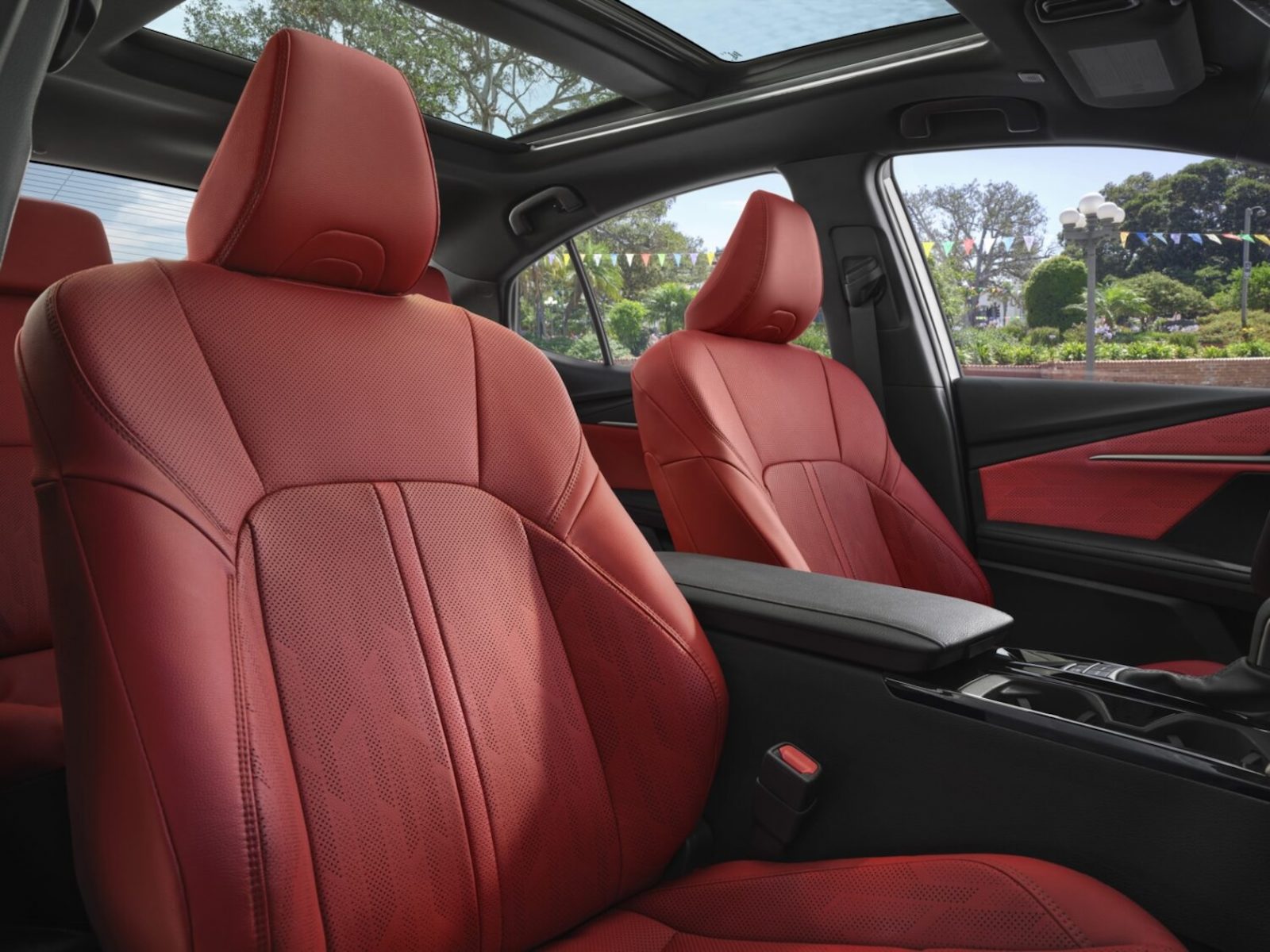
All Camrys get the latest Toyota Audio Multimedia with wireless Apple CarPlay/Android Auto, Qi charging and over-the-air updates. A JBL premium audio system is optional. Safety tech includes blind spot monitoring and Toyota Safety Sense 3.0 active systems like pedestrian detection, radar cruise control and lane tracing assist.
Toyota says its electronic all-wheel drive system for a Camry Hybrid improves traction and stability. Retuned suspension aims for more responsive handling.
Pricing is expected to start around $30,000 when the new 2025 Toyota Camry Hybrid arrives at dealers in Spring 2024.
Our Thoughts
Americans have purchased over one million hybrids so far in 2023, according to Edmunds – a 76% increase compared to the same period last year. Meanwhile, battery electric vehicle sales have grown 50% over the same timeframe. As the grandfather of hybrid technology, it comes as no surprise that Toyota is well-positioned to benefit most from the strong consumer appetite for hybrids.

